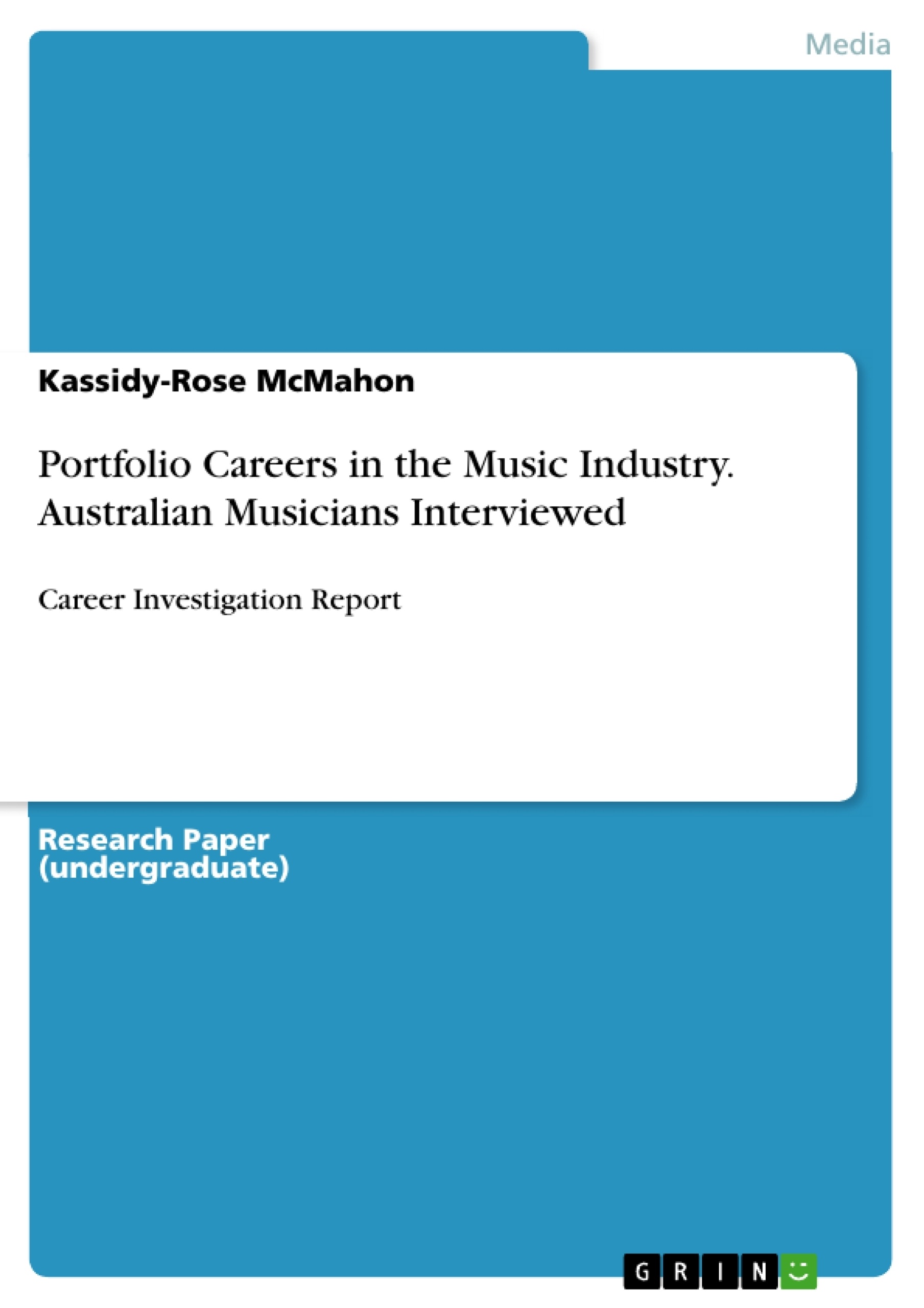The three musicians interviewed each follow a portfolio career, which combines performing, accompanying, teaching, lecturing, composing and working in ensembles. This report examines these musicians’ careers to prove the validity of a portfolio career in the twenty-first Century by exploring the advantages and disadvantages of this pathway. The Director of Music for the Australia Council for the Arts, Paul Mason, defines a successful musician as someone who can “put themselves in new circumstances and new partnerships” (Tolmie, 2017).
Jeff Usher is Jazz pianist (Nu Orleans Bar and Restaurant), University lecturer (Queensland Conservatorium Griffith University), composer and teacher. Victoria Bilogan is a concert pianist, accompanist (University of Melbourne, teacher, chamber music tutor (Scotch College) and is a member of a duo (Morbius Duo) and a trio (Mobius Trio). Daniel Allen is a secondary relief teacher (Padua College), performer (Little Black Dots Music), Music Coordinator (St Agatha Parish), Band Sergeant (Brisbane Excelsior Band) and Client Services Officer (Ladbrokes Australia) (LinkedIn, 2017).
Inhaltsverzeichnis (Table of Contents)
- Career Investigation Report
Zielsetzung und Themenschwerpunkte (Objectives and Key Themes)
This report explores the experiences of three musicians who pursue portfolio careers in the music industry. It aims to demonstrate the viability of this career path in the 21st century by examining its advantages and disadvantages. The report is based on interviews with these musicians.
- The importance of specialized training in music and related fields
- The challenges and rewards of a portfolio career in music
- The role of technology in shaping the music industry and career opportunities
- The significance of building a support system and network in the music industry
- The impact of a portfolio career on personal health and well-being
Zusammenfassung der Kapitel (Chapter Summaries)
- The report begins by introducing the three musicians who are the focus of the study. Each musician has a diverse portfolio of musical activities, including performing, teaching, composing, and working in ensembles. The report aims to analyze these careers to assess the effectiveness of a portfolio approach in the contemporary music industry.
- The next section highlights the significance of specialized training in music and related fields. The interviewees emphasize the importance of ongoing professional development to remain competitive in the music industry. This section emphasizes the need for musicians to acquire a broad range of skills, including pedagogy, improvisation, and accompanying, to enhance their employability.
- The report then explores the advantages and disadvantages of a portfolio career in music. While portfolio careers offer flexibility and variety, they can also lead to feelings of overwhelm and superficial engagement. This section also addresses the impact of a portfolio career on personal health, with interviewees reporting challenges related to irregular sleep, playing-related injuries, and burnout.
- The importance of building a strong support system and network is discussed in the following section. The interviewees highlight the value of mentors, colleagues, and family members in providing guidance, encouragement, and emotional support. This section emphasizes the collaborative nature of the music industry and the importance of building relationships to navigate its challenges.
- The final section examines the role of technology in the music industry. The interviewees discuss the advantages and disadvantages of technology, including its potential for increased collaboration, performance opportunities, and teaching resources. The report also addresses the potential threat of technology to traditional career paths in music, such as accompanying, due to the rise of digital alternatives.
Schlüsselwörter (Keywords)
This report focuses on the portfolio career of musicians in the 21st century, examining the importance of specialized training, the advantages and disadvantages of this career path, the role of technology, and the significance of building a support network. Key themes include the challenges and rewards of a portfolio career, the impact of technology on the music industry, and the importance of professional development and networking.
- Quote paper
- Kassidy-Rose McMahon (Author), 2017, Portfolio Careers in the Music Industry. Australian Musicians Interviewed, Munich, GRIN Verlag, https://www.hausarbeiten.de/document/369878


